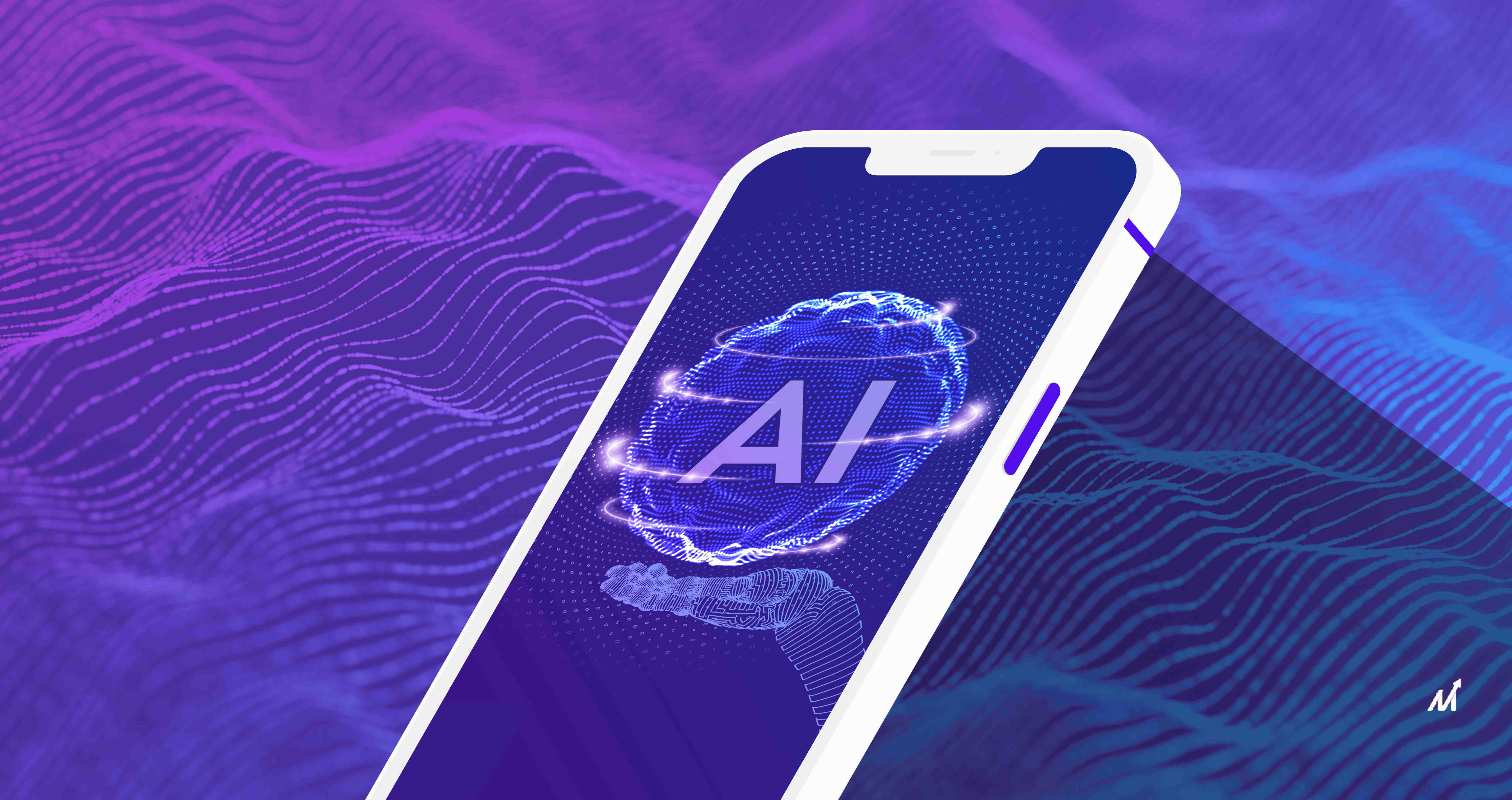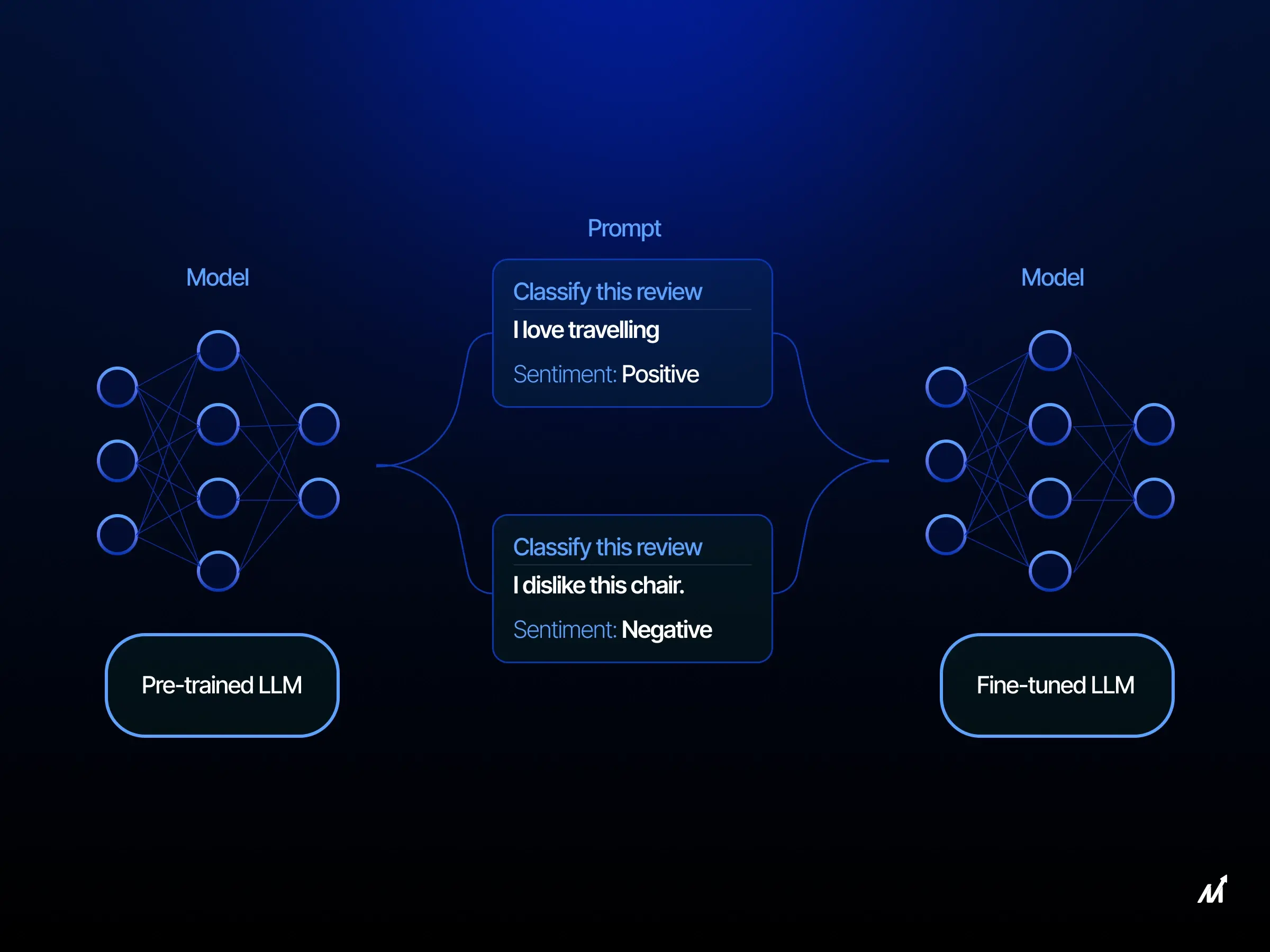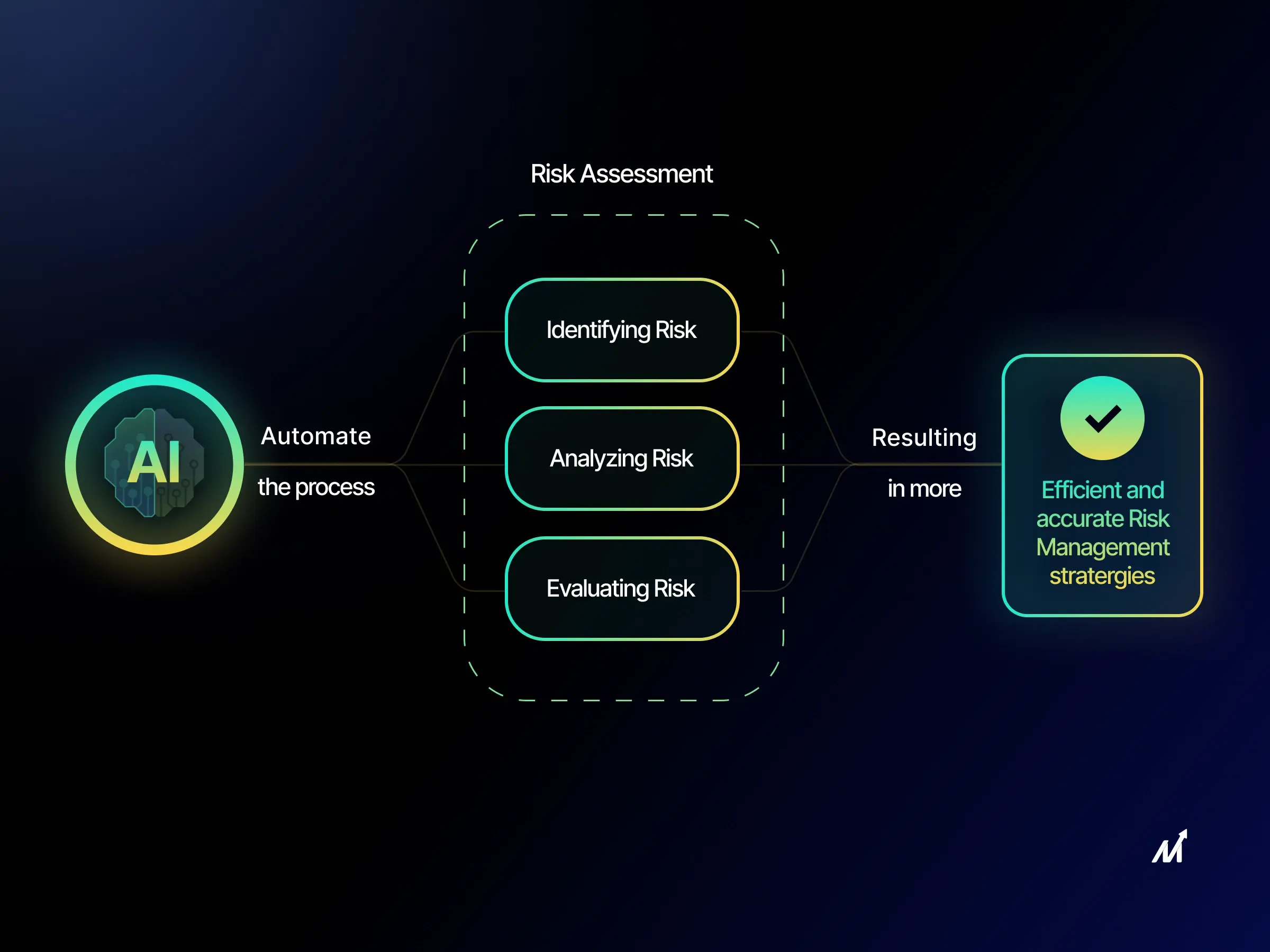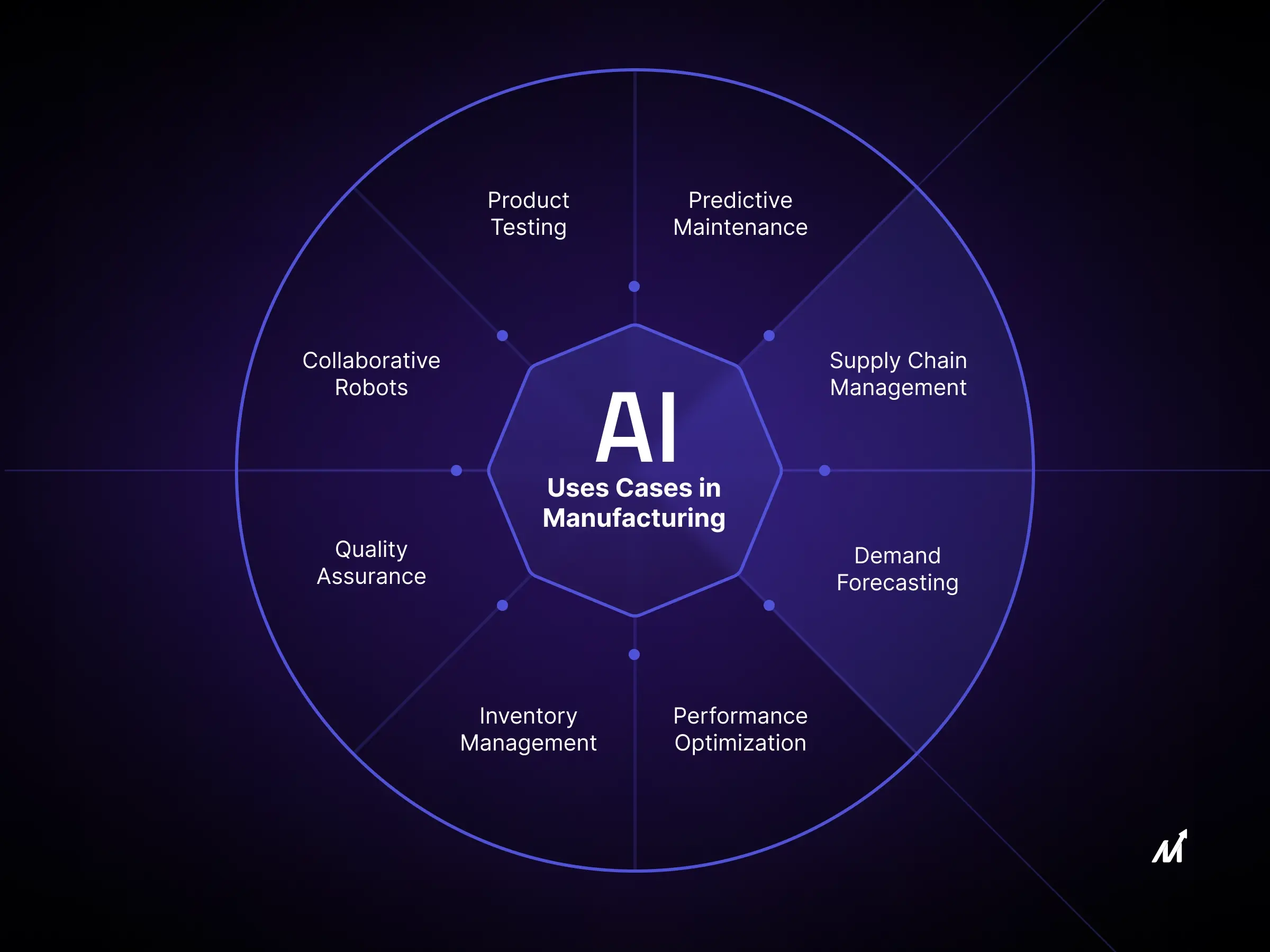AI Mobile App Design: Introduction
AI is no longer just for companies like Amazon, Microsoft, Netflix, etc. Take, for example, Siri; the AI-powered virtual assistant is one of Apple’s most popular AI applications. Cortana is another famous virtual assistant from Microsoft. These are among the best AI mobile app design, with millions of users worldwide. But, AI in business and mobile applications have much more functionality than virtual assistants and chatbots.
Today, AI is available in the products and processes of most industries. Here, in this blog, let’s look at how AI applications enable innovative user experiences in mobile apps. And how AI app design is particularly empowering different industries.
What Is AI & How Does It Work In Mobile Applications?
Artificial Intelligence (AI) refers to the ability of a computer system or computer-controlled robot to display intelligence and stimulate human behavior or thinking. In simple words, it is the ability of a system or program to think and learn from experience.
John McCarthy defined Artificial Intelligence as “the science and engineering of making intelligent machines.”
An AI-integrated app is trained using volumes of data to solve specific problems and perform complex tasks. It is, basically, a combination of Deep Learning and Machine learning.
Consequently, AI models have the capability to make intelligent decisions.
The Science Daily journal defines Artificial Intelligence as “the study and design of intelligent agents where an intelligent agent is a system that perceives its environment and takes actions which maximize its chances of success.”
How Does AI Work In Mobile Applications?
Have you used automatic switching of lights at your home or office? Or the smart TV that identifies your voice and performs actions. These are some day-to-day examples of AI.
Similarly, mobile applications for various industries utilize AI in data visualization, speech recognition, real-time analytics, and more functionalities.
Most enterprises today are using AI in some way or the other. AI mobile apps are taking over in different industries.
A report suggests that the revenue of artificial intelligence (AI) applications will reach 126 billion dollars by 2025 worldwide.
How Has AI Mobile App Design Transformed The Mobile App Industry?
Artificial Intelligence, or AI, has become popular in the past decades. In the 1950s, experts performed scientific and academic research on AI. Alan Turing termed ‘thinking machines’ in his famous research paper.
However, there was little progress in integrating Artificial Intelligence into mobile apps. Because of the lack of data for machines to learn about the real world. Also, the lack of funds and processing power contributed to the slow development of AI technology.
Artificial Intelligence can yield immense business value by integrating it into your enterprise application development. AI applications have revolutionized the user experience in mobile apps.
According to Gartner, the business value of AI will reach over 3 billion dollars within the next couple of years.
With rapid innovation, research, and investment, Artificial Intelligence has become a viable business tool disrupting industries. An essential tool in mobile app development to empower enterprises.
Guiding Tenets for Integrating AI/ML with Mobile Application Design
The convergence of AI mobile app design provides an invaluable opportunity for creating smarter, more user-centric applications. Adherence to several key tenets allows enterprises to secure a competitive edge in the marketplace.
1. Establish Cohesive Terminology
Creating synergy between mobile application design and AI/ML development necessitates a unified lexicon that encapsulates elements such as user experience evaluation, product objectives, and business imperatives. A jointly conceived framework, incorporating both data streams and user interfaces, provides an anchoring point for collaborative planning between machine learning specialists and user experience architects.
2. Zero-In on the Functional Objective
For customer-oriented applications, the primary consideration should not be the underlying technology but the business mission and the user experience intended. Clarifying the functional objective allows teams to concentrate on user pathways and identify crucial junctions where machine learning algorithms can optimize interactions. Defining the functional objective also helps teams pinpoint the appropriate key performance indicators, thereby aligning user experience goals with machine learning outcomes.
3. Integrate Both Quantitative and Qualitative Metrics
Comprehending the ramifications of melding AI/ML technologies with user experience design mandates a dual-pronged approach that harnesses both qualitative and quantitative analyses. Qualitative methods like surveys and direct user input are vital for understanding the human side of the interaction. The importance of this integration lies in its capability to reveal unexpected variables affecting both AI/ML functionality and user experience, such as feedback loop efficacy, data point precision, and behavioral analytics.
4. Contextualize Data in Real-World Applications
A successful marriage of machine learning and user experience requires the implementation of an end-to-end solution that includes a viable Minimum Viable Product (MVP). Incorporating operational data pipelines and machine learning modules into the MVP allows for iterative design based on direct user input. When specialists in machine learning and user experience pool their knowledge to address product design challenges, the iterative process gains both efficacy and efficiency.
5. Prioritize Transparency in Data Acquisition
The act of crafting an AI mobile app design involves an ongoing commitment to focusing on the nuances of data collection. Considering the perspective of the end-user during this phase ensures that the AI algorithms function optimally. Users should have the agency to modify both the data that informs the AI and the machine learning outcomes to ensure alignment with user expectations.
AI Mobile App Design Across Industries
Most industries have utilized the predictive technology and intelligence of AI. Hence, the growing interest in Artificial Intelligence has shifted to being more industry-specific. For example, “AI in Manufacturing” is the most searched on Google.
Implementing and scaling AI app design has become effective for generating business value. How can you incorporate AI into your enterprise app development, UX design, and user interface?
It especially depends on your industry-specific needs and trends. Let’s look at how AI mobile app design is utilized and its impact on different industries.
AI In Healthcare
- AI in Healthcare is estimated to reach USD 95.65 by 2028, increasing from USD 6.60 billion in 2021 with 46% of CAGR(Compound Annual Growth Rate).
- Integration of AI in the Healthcare industry enabled an array of Healthcare services. Like personalized Healthcare, personal data analysis for more accurate diagnosis, using patients’ data sets, early and assisted diagnosis, drug discovery, etc.
- Investments in AI in Healthcare are estimated to grow at an annual 48% rate between 2017 and 2023 (Source: Business Insider Intelligence’s Digital Health Ecosystem Report).
This implies more and more integration of AI in Healthcare apps in the coming years. - Through the Internet of Medical Things (IoMT), AI connects endpoint devices and applications to Healthcare IT systems.
It has enabled real-time monitoring, drug management, better chronic care management, and improved patient engagement. - The potential of AI has also been utilized to power surgical robots, which decrease surgeons’ fluctuations in complex surgery.
Surgical robots help deliver critical insights and accurate medical practices using millions of datasets. - Additionally, senior care became complex to manage with the onset of the Covid-19 pandemic. AI has been able to provide solutions with health assistants, especially to cope with the situation.
- One such innovative example is ‘Elliq,’ a robot health assistant for those in need designed by Intuition Robotics. Many such AI solutions have satisfied the need for daily care.
Artificial Intelligence In Finance
- The use of AI in banks is chiefly for securing customer identities, mimicking live employees, and deepening digital interactions.
- Banks that use AI can enable 24/7 customer interactions across channels. Along with custom communication and solutions to individual clients.
- According to Forbes, 70% of financial firms utilize machine learning to detect fraud, predict cash flow events, and adjust credit scores.
- From Robo-financial advisors who analyze volumes of data in a short span of time to fraud detection. AI has been utilized in Finance to improve banking and financial services significantly.
- Risk management tools for banks use a wide range of data sets available and provide accurate insights.
- Also, intelligent Robo financial advisors have replaced human agents. And AI-based chatbots for customer service and an improved customer experience.
- By detecting fraudulent financial behavior, AI has leveraged security in banking by utilizing various data points.
- Fraud detection and prevention use cases are popular in the payment industry to optimize the security of payment platforms.
AI In e-Commerce & Retail
- According to Mordor Intelligence, global artificial intelligence in retail is expected to leap with a CAGR of 35% from 2021 to 2026.
- AI in e-commerce and Retail has improved the overall functioning of the industry, like customer experience, inventory management, forecasting, etc.
- With the help of machine learning and deep learning, AI has been instrumental in delivering real-time insights from data.
- Do you know how the Amazon application recommends products to you? Amazon uses an AI algorithm to identify which products you will likely add to the cart.
- An advanced type of AI in Retail is “Computer vision,” which brings near-real-time-intelligence to your brick-and-mortar stores.
- You can say there is a lot in store for the retail industry in the future for Retail AI application development.
AI In Manufacturing
- The Manufacturing industry is at the forefront of utilizing as well as incorporating AI. A Mckinsey report suggests AI in Manufacturing can improve forecasting accuracy by 10-20%, which implies a 5% reduction in inventory costs and a 2-3% increase in revenues.
- AI has empowered a lot of operations when it comes to the Manufacturing industry. Industrial robots with AI are an integral part of the manufacturing process. Programmable collaborative bots work with employees to perform repetitive tasks.
- Along with advanced robotics, AI app design has enabled improved efficacy, product quality, and manufacturing analytics.
- AI applications in Manufacturing enable automated quality control, defect detection to predictive maintenance.
Artificial Intelligence In Real-Estate
- The real estate industry uses AI similarly for selling, buying, financing home renovations, and more.
- Real-estate AI apps learn user behavior and provide a more efficient as well as effective customer or user experience. AI has transformed buying, selling, and home financing from accurate assessments to market forecasts.
- AI algorithms can surely process millions of real estate documents in seconds. By utilizing the volumes of data available for property values, debt levels, and personal information, custom solutions are being delivered for users in the real estate industry.
- AI technology enables brokers as well as agents to predict the future value of a property in a specific market.
- One can utilize AI in real estate apps in more innovative ways to serve the changing and varying needs of users/customers.
- Airbnb uses AI in smart pricing algorithms and AI-enabled guest background checks.
The Future Of AI Mobile App Design
The advancements in AI research and creative thinking to utilize AI mobile app design will create successful apps across industries. Most industries are tapping into AI’s power with tech companies’ help.
Big tech companies like Apple, Google, and Amazon have facilitated such advancements. AI in different industries has addressed data security, privacy, compliances, and regulations.
Although the benefits of AI mobile app design have been utilized in the mobile app industry, there are certain challenges too. Like the high costs of integrating AI into apps, the knowledge of technology, and finding expert developers for the app deployment.
However, adopting AI in mobile apps is certainly the future in most industries.








